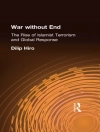The emergent so-called �Fourth Industrial Revolution� is regarded by some as a panacea for bringing about development to Africans. This book dismisses this flawed reasoning. Surfacing how �investors� are actually looting and plundering Africa; how the industrial internet of things, the gig economies, digital economies and cryptocurrencies breach African political and economic sovereignty, the book pioneers what can be called anticipatory economics � which anticipate the future of economies. It is argued that the future of Africans does not necessarily require degrowth, postgrowth, postdevelopment, postcapitalism or sharing/solidarity economies: it requires attention to age-old questions about African ownership and control of their resources. Investors have to invest in ensuring that Africans own and control their resources. Further, it is pointed out that the historical imperial structural creation of forced labour is increasingly morphing into what we call the structural creation of forced leisure which is no less lethal for Africans. Because both the structural creation of forced labour and the structural creation of forced leisure are undergirded by transnational neo-imperial plunder, theft, robbery, looting and dispossession of Africans, this book goes beyond the simplistic arguments that Euro-America developed due to the industrial revolutions.
Victor Warikandwa & Artwell Nhemachena
Grid-locked African Economic Sovereignty [PDF ebook]
Decolonising the Neo-Imperial Socio-Economic and Legal Force-fields in the 21st Cen
Grid-locked African Economic Sovereignty [PDF ebook]
Decolonising the Neo-Imperial Socio-Economic and Legal Force-fields in the 21st Cen
ซื้อ eBook เล่มนี้และรับฟรีอีก 1 เล่ม!
ภาษา อังกฤษ ● รูป PDF ● หน้า 654 ● ISBN 9789956550203 ● ขนาดไฟล์ 4.7 MB ● บรรณาธิการ Victor Warikandwa & Artwell Nhemachena ● สำนักพิมพ์ Langaa RPCIG ● ประเทศ CM ● การตีพิมพ์ 2019 ● ที่สามารถดาวน์โหลดได้ 24 เดือน ● เงินตรา EUR ● ID 6919707 ● ป้องกันการคัดลอก Adobe DRM
ต้องใช้เครื่องอ่านหนังสืออิเล็กทรอนิกส์ที่มีความสามารถ DRM












